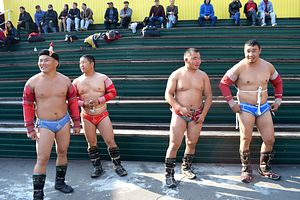Located in the deep south of Siberia, the Tuva Republic is one of Russia’s most isolated and culturally unique regions. Nominally independent between the two world wars, Tuva was one of the last territories added to the Soviet Union. Today, Tuva is a land of contradictions: famed for its throat singing and shamanism around the world, the region remains among the most disconnected inside Russia. No railroad line reaches the republic, and flights to Kyzyl, Tuva’s capital, are few and far between. The quickest way in is a five-hour taxi ride through the Sayan mountains and across the vast Siberian steppe.
Perhaps because of its isolation, Tuva remains culturally vibrant. Ethnic Tuvans make up around 80 percent of the population (a rarity in Russia’s “ethnic republics”), and Tuvan cultural practices — folk music, khuresh wrestling, and nomadism — capture the imagination of “friends of Tuva” around the world.
Bradley Jardine is a journalist and researcher from Glasgow, Scotland. He is currently based in Moscow as part of the Alfa Fellowship Program.
Matthew Kupfer is an American journalist focused on the former Soviet Union. He is currently based in Moscow as part of the Alfa Fellowship Program.















































